hello.
i recently visited my brother in la, and we spent the day wandering through little tokyo. it felt like the perfect time to write a letter to my love for japanese literature, film, music, and everything in between… i made a little tokyo vlog here
there’s something about japanese literature that feels like slipping into a dream—soft, melancholic, a little surreal, but always deeply human. the way it captures quiet moments, the stillness between thoughts, the weight of nostalgia, it’s unmatched. there’s this delicate balance between simplicity and depth, between the everyday and the existential. dazai, whose work carries a raw, unbearable honesty that peels back the layers of human despair with unsettling clarity. or mishima, with razor-sharp prose and an obsession with beauty and decay. japanese literature lingers, like the scent of rain or the aftertaste of green tea, something you can’t quite name but feel completely immersed in.
japanese films carry that same magic. they capture slowness in a way that feels intentional, not empty. films like late spring or tokyo story are quiet, but within that quiet is a whole world of emotion—love, loss, longing. there’s the sheer atmospheric beauty of studio ghibli films. spirited away feels like stepping into another realm, while kiki’s delivery service captures the quiet loneliness of growing up, of finding yourself in a world that doesn’t quite slow down for you. even in darker films, like perfect blue or house, there’s a sense of controlled chaos, an aesthetic precision that makes the horror feel almost hypnotic.
this deep reverence for nature, for change, and for the transient nature of things is what makes both japanese literature and film so unforgettable—the way they embrace ephemerality without fear, the way they lean into the sadness of things passing without trying to hold on too tightly. they just let life be, in all its beauty and strangeness.
there’s also the undeniable reality of reading in translation—no matter how masterful the translator, there will always be a slight disconnect, a layer of distance between us and the original text. language carries nuance, history, entire ways of thinking that can never be fully transplanted into another tongue. but that’s why it’s our responsibility as readers to go the extra mile—to learn about the cultural and historical contexts, to read multiple translations, to understand the choices made in bringing a work from one language to another. when we do, literature becomes something even more alive, something that bridges worlds rather than just translating words. it’s a commitment, but one that turns reading into an even richer, more intimate experience.
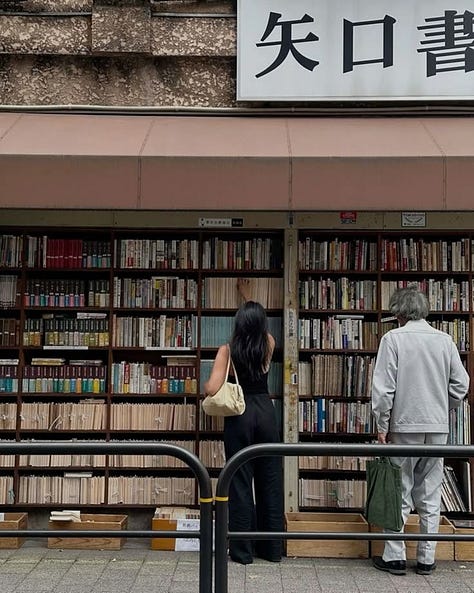
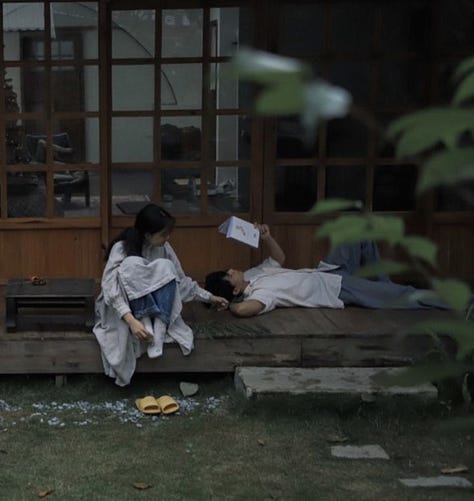
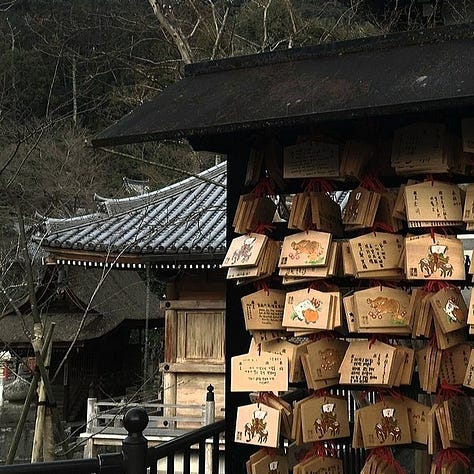
japanese literature to read:
kitchen – banana yoshimoto
a quiet, melancholic novel about grief, found family, and the small comforts that tether us to life. at its core, it's about loneliness and survival—how we cope with loss, how we find warmth in unexpected places, how a simple kitchen can become a sanctuary.
the housekeeper and the professor – yoko ogawa
a delicate, deeply human story about memory, mathematics, and fleeting connections. a housekeeper is assigned to care for a brilliant mathematician whose memory resets every 80 minutes, and through numbers, patterns, and quiet gestures, an unspoken bond forms between them. a book about the beauty of the ephemeral.
star – yukio mishima
a razor-sharp, self-aware novella about celebrity, vanity, and the emptiness of fame. written by mishima while he was acting in films himself, it’s suffused with cynicism and artifice—examining the mask of stardom and the loneliness beneath it.
spring snow – yukio mishima
the first book in the sea of fertility tetralogy, spring snow is a tragic, sweeping tale of doomed love set in early 20th-century japan. it’s a novel of obsession, fate, and rigid social structures—hauntingly beautiful and deeply fatalistic.
the sailor who fell from grace with the sea – yukio mishima
a violent, unsettling novel about purity, masculinity, and destruction. a group of disillusioned boys idolizes a sailor who embodies the romantic ideal of freedom—until he betrays their vision, and they decide to make him pay for it. mishima at his most brutal and philosophical.
confessions of a mask – yukio mishima
a semi-autobiographical novel about desire, repression, and the performance of identity. the protagonist, a young man growing up in wartime japan, grapples with his attraction to men, hiding behind a carefully crafted persona. a fascinating study of self-denial and yearning.
if cats disappeared from the world – genki kawamura
a whimsical but devastating novel about a man who makes a deal with the devil to extend his life—at the cost of erasing one thing from the world each day. as he weighs what truly matters, it becomes a meditation on love, loss, and all the small things we take for granted.
no longer human – osamu dazai
a raw, existential novel about alienation and self-destruction. through a series of notebooks, a deeply broken man recounts his life of deception, shame, and addiction, convinced he was never meant to be human. dark, cynical, and painfully intimate.
the setting sun – osamu dazai
a novel about the decline of aristocratic japan, following a once-wealthy family as they struggle to adapt to a rapidly changing world. it’s a book about ruin—both personal and societal—steeped in melancholic beauty and quiet desperation.
schoolgirl – osamu dazai
a single day in the mind of a teenage girl, written in a stream-of-consciousness style that captures the restless, self-conscious energy of adolescence. it’s about the contradictions of growing up—innocence and cynicism, joy and despair, longing and rebellion.
territory of light – yuko tsushima
a luminous, introspective novel about a woman navigating single motherhood and solitude in tokyo. each chapter unfolds like a quiet revelation, filled with light and shadow, capturing the shifting emotions of loss, resilience, and self-reinvention.
sweet bean paste – durian sukegawa
a gentle, bittersweet story about loneliness and human connection. a struggling man hires an elderly woman to help him make sweet bean paste, only to learn that she carries a painful secret. it’s a meditation on kindness, acceptance, and the weight of the past.
the traveling cat chronicles – hiro arikawa
a road trip novel, but with a cat. nana, a former stray, travels across japan with his owner, meeting people from his past. it’s heartwarming, but also deeply sad—exploring friendship, memory, and the quiet understanding between humans and animals.
i am a cat – natsume soseki
a satirical, meandering novel told from the perspective of a cynical, observant cat who watches the absurdities of human life. a biting social commentary wrapped in dry humor and existential musings.
kiki’s delivery service – eiko kadono
a charming coming-of-age story about a young witch learning to navigate independence, responsibility, and self-doubt. if you love the ghibli film, the book offers even more insight into kiki’s inner world.
convenience store woman – sayaka murata
a darkly funny, unsettling novel about a woman who has worked in the same convenience store for 18 years and has no desire to change. it’s a critique of societal expectations and an exploration of what it means to live authentically—whether or not the world understands you.
after dark – haruki murakami
a surreal, nocturnal novel that follows a series of interconnected strangers as they navigate tokyo’s neon-lit underbelly. mysterious, dreamlike, and tinged with loneliness, it feels like slipping into another dimension for a night.
kafka on the shore – haruki murakami
a novel about fate, memory, and parallel realities. a runaway boy, a man who can talk to cats, a mysterious library, and a metaphysical journey that blurs the line between dreams and waking life. murakami at his most mythic and strange.
the lake – banana yoshimoto
a quiet, melancholic novel about trauma, healing, and the way love can be both a refuge and a mystery. the story follows a woman drawn to an enigmatic artist with a painful past, their connection unfolding with a soft, eerie beauty.
heaven – mieko kawakami
a harrowing novel about two middle school outcasts who form a fragile bond in the face of relentless bullying. kawakami doesn’t flinch from the cruelty of adolescence, but she also finds moments of tenderness, questioning whether suffering can ever be shared or understood.
breasts and eggs – mieko kawakami
a bold, unfiltered novel about womanhood, class, and bodily autonomy. following three women at different stages of life, it explores the pressures of beauty, motherhood, and self-definition in a world that constantly demands women to be something else.
under the eye of the big bird – hiromi kawakami
a surreal, fragmented meditation on memory, love, and the strangeness of everyday life. kawakami’s work always has a dreamy, slightly off-kilter quality—this one feels like slipping in and out of reality.
strange weather in tokyo – hiromi kawakami
a quiet, tender novel about an unlikely romance between a lonely woman and her former high school teacher. subtle, atmospheric, and tinged with nostalgia, it’s about companionship, aging, and the quiet intimacy of shared meals and unspoken understanding.
i’m adding popeye magazine to this list because it’s one of my favorite magazines of all time, specifically the girlfriend editions.
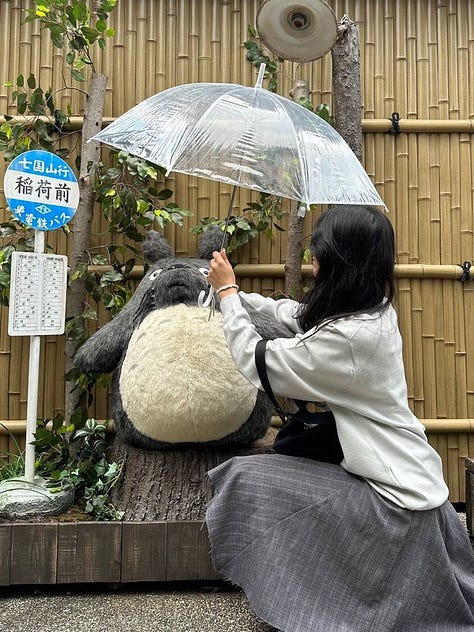
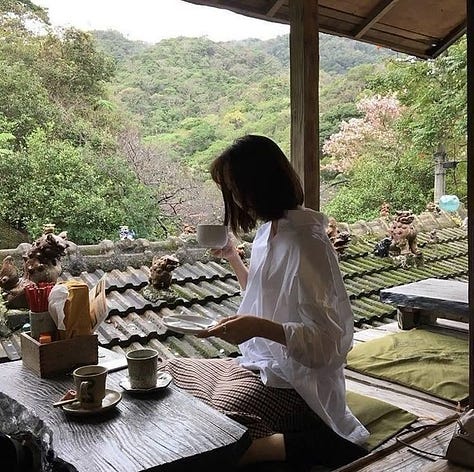
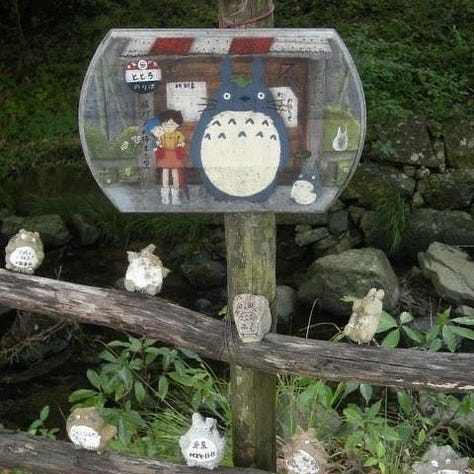
japanese films:
little forest (2014) – a quiet, meditative film about a young woman who leaves the city to live self-sufficiently in the countryside, cooking seasonal meals and finding solace in nature.
serial experiments lain (1998) – an eerie, cerebral anime that explores identity, consciousness, and the blurred lines between reality and cyberspace through the story of a girl drawn into a strange digital world.
blue (2002) - an introspective love story between two high school girls, exploring themes of first love, longing, and self-discovery with a minimalist, melancholic atmosphere.
neon genesis evangelion (1995-1996) – a psychologically intense mecha anime about teenagers piloting bio-mechanical giants to fight mysterious beings, while unraveling existential dread, trauma, and the nature of human connection.
swing girls (2004) – a feel-good comedy about a group of high school girls who, through a series of mishaps, form a jazz band and discover an unexpected passion for music.
tampopo (1985) – a hilarious, sensual, and deeply loving ode to food, following a woman’s quest to perfect the ultimate bowl of ramen, interwoven with surreal vignettes about culinary obsession.
the taste of tea (2004) – a whimsical, dreamlike film about an eccentric family in rural Japan, where reality and imagination blend into a slow, poetic meditation on life’s small moments.
nobody knows (2004) – a devastating film based on a true story, following a group of abandoned siblings struggling to survive on their own in a Tokyo apartment.
ikiru (1952) – a deeply moving Kurosawa masterpiece about a terminally ill bureaucrat who, after a life of insignificance, seeks to do something meaningful with his final days.
whisper of the heart (1995) – a tender, coming-of-age Ghibli film about a book-loving girl who discovers love, creativity, and self-discovery while chasing the mystery of a strange antique shop.
howl’s moving castle (2004) – a beautifully animated fantasy about a cursed young woman who finds herself in the floating home of a mysterious wizard, navigating war, magic, and love.
the case of hana & alice (2015) – a charming, offbeat mystery following two schoolgirls as they investigate a bizarre urban legend surrounding their school.
tokyo twilight (1957) – a heartbreaking, noir-tinged drama about estranged family ties, regret, and the suffocating loneliness of postwar Tokyo.
drive my car (2021) – a slow, introspective drama about grief, art, and human connection, following a widowed actor who forms an unexpected bond with his young chauffeur.
norwegian wood (2010) – a melancholic adaptation of Murakami’s novel, capturing the quiet ache of first love, loss, and the deep emotional turbulence of youth.
spirited away (2001) – a stunning, surreal fantasy about a girl trapped in a magical bathhouse for spirits, learning courage and self-reliance as she searches for a way home.
paprika (2006) – a visually dazzling, mind-bending thriller about a dream therapist who enters people’s subconscious, blurring the line between dreams and reality.
love & pop (1998) – an experimental, unsettling film about a teenage girl navigating Tokyo’s enjo-kōs
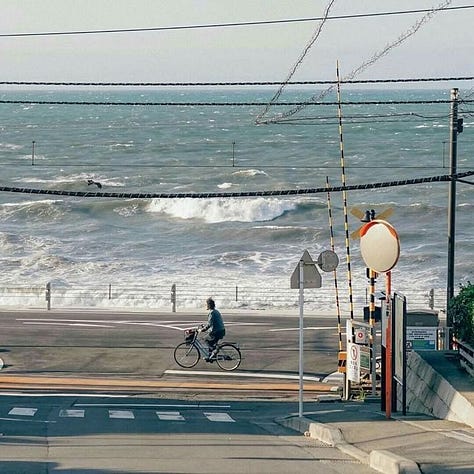


music:
lastly, i want to highlight some japanese fragrance brands or fragrances that are inspired by japan…
japanese inspired fragrances:
a scent that feels like a quiet afternoon in a traditional tea house, the air thick with the warmth of roasted leaves and the soft hum of rain against the tatami mats. this isn’t the delicate floral green tea of western perfumery, but something deeper, richer—earthy and toasted, with the comforting bitterness of sencha meeting the unexpected nuttiness of peanut and coconut. mint and jasmine weave through, like steam rising from a cup, before settling into a grounding base of iris and cedar. it evokes the stillness of an empty garden, where the only movement is the curl of smoke from a brazier. it lingers like a memory, gentle but persistent, a scent of simplicity, ritual, and quietude.
notes: japanese green tea, peanut, coconut, mint, jasmine, vanilla, iris, cedar, clover
a moment of intimacy—skin still warm from the sun, the scent of fresh linens, the delicate sweetness of pear on your breath. the rice note brings a soft, starchy warmth, reminiscent of steamed grains cooling in the evening air, while milk and green notes create a sense of purity, something almost translucent. jasmine and rose bloom quietly, like the blush of dawn, while sandalwood and amber wrap around the composition, grounding it in something both familiar and intangible. this is the scent of nostalgia—of a fleeting touch, a pressed flower between pages, the soft rustling of cotton against bare skin.
notes: pear, milk, green notes, rice, jasmine, rose, sandalwood, amber
a scent that belongs to the mountains, to the sacred spaces hidden within dense forests where the air is thick with the scent of cypress and damp earth. hinoki is the wood of ancient shrines, of ryokans with open-air baths where steam mingles with the scent of cedar and moss. here, the sharp clarity of hinoki meets the clean, almost paper-like scent of cypress, softened by the powdery elegance of iris. sandalwood and cedar settle into the skin like the memory of incense curling through temple halls, a quiet whisper of something both ancient and enduring.
notes: cypress, white paper, hinoki wood, geranium, iris, cedar, sandalwood
kusunoki is the scent of shifting light—citrus-bright at first, like the sun reflecting off water, then slowly darkening into something warm and resinous. bergamot, orange, and grapefruit burst open like golden light filtering through temple eaves, bright and fleeting. beneath it, cashmere wood and camphor create a cool, almost medicinal edge, evoking the crisp scent of wind through camphor trees. as it settles, lily of the valley and musk create a weightless, almost ethereal presence before the warmth of vanilla and balsam fir brings it back to earth, like the lingering scent of woodsmoke on a silk sleeve.
notes: bergamot, orange, grapefruit, cashmere wood, camphor, lily of the valley, musk, vanilla, balsam fir
a scent that captures tokyo in monochrome—a city blurred by rain, neon reflections pooling in puddles, the quiet hum of a train pulling into the station at midnight. gaiac 10 is minimal, but not empty—it’s the scent of skin warmed by musk, of guaiac wood burning low and slow, of cedar and olibanum creating an atmosphere that feels both futuristic and deeply rooted in tradition. it’s tokyo at its most intimate: a handwritten note left on a lacquered counter, the hush of a bookstore just before closing, the feeling of wandering through a city that is alive even in its stillness.
notes: musk, guaiac wood, cedar, olibanum
unspoken gesture by jorum studio
a scent that feels like a secret—something passed between lovers in hushed tones, a fleeting moment that lingers long after it has gone. the almond and ambrette create a skin-like warmth, soft and whispering, while cardamom and cedarwood add depth, like the warmth of sun through shoji screens. fig and hazelnut bring an unexpected richness, like the scent of hands dusted in flour, of something sweet and unspoken. as it fades, violet leaf and ylang-ylang weave through, a ghostly presence, something unfinished yet whole. it’s a scent that lingers on the edge of memory—half-forgotten, but impossible to let go of.
notes: almond, ambrette seed, cardamom, cedarwood, fig, hay, hazelnut, malt, mimosa absolute, musk, rice, sandalwood, violet leaf, ylang-ylang
steam rises from a porcelain teacup, light as breath but layered with quiet complexity. the jasmine is gentle, never overwhelming—more a suggestion than a statement, like petals resting on the surface of a just-poured oolong. sage threads through with a cool, herbal clarity, grounding the composition like sunlight filtering through shoji screens. at its core, the tea note is both warm and weightless, carrying that soft, lingering bitterness that makes you lean in. musk and vetiver settle into the skin, turning something ephemeral into something lasting. it’s the ritual of afternoon tea, a fragrance that doesn’t just scent the air—it hushes it.
notes: jasmine, sage, tea, oolong tea, musk, vetiver
warmth in its purest form—soft, delicate, and deeply nostalgic. the steamed rice note is gentle and pillowy, a scent that lingers like the air in a kitchen where something simple and familiar is being prepared with care. orris and jasmine weave through like quiet whispers, adding a creamy, almost velvety texture, never overpowering, just there, like a memory you can’t quite place. musk and tonka bean settle in, sweet but restrained, like the warmth of skin pressed against cotton. cedarwood hums beneath it all, grounding the scent without disrupting its softness. it’s comfort, it’s home, it’s the quiet kind of scent that wraps around you like a childhood lullaby.
notes: rice, orris, jasmine, musk, tonka bean, cedarwood
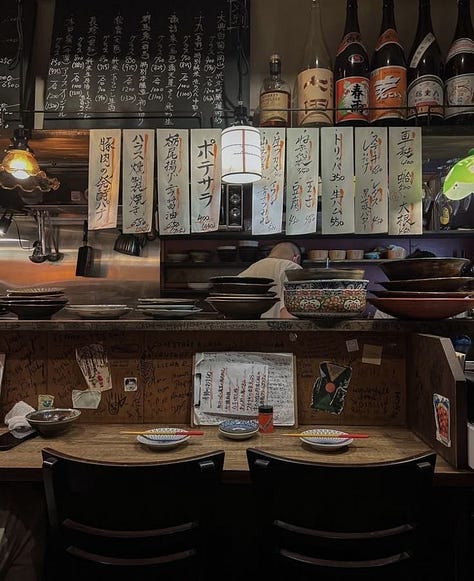

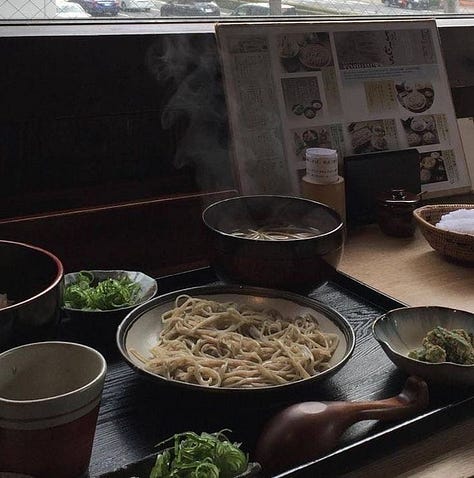
okay, that’s all i have for you today. i hope you enjoyed this letter.
if you’re not ready to become a paid subscriber and you have the capacity to leave a tip, that would be so appreciated.
i love you.
bye.
(follow ig, tiktok, youtube, pinterest and spotify for more)

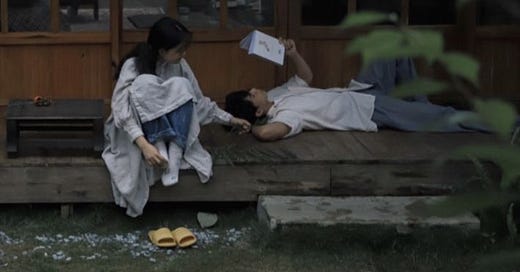


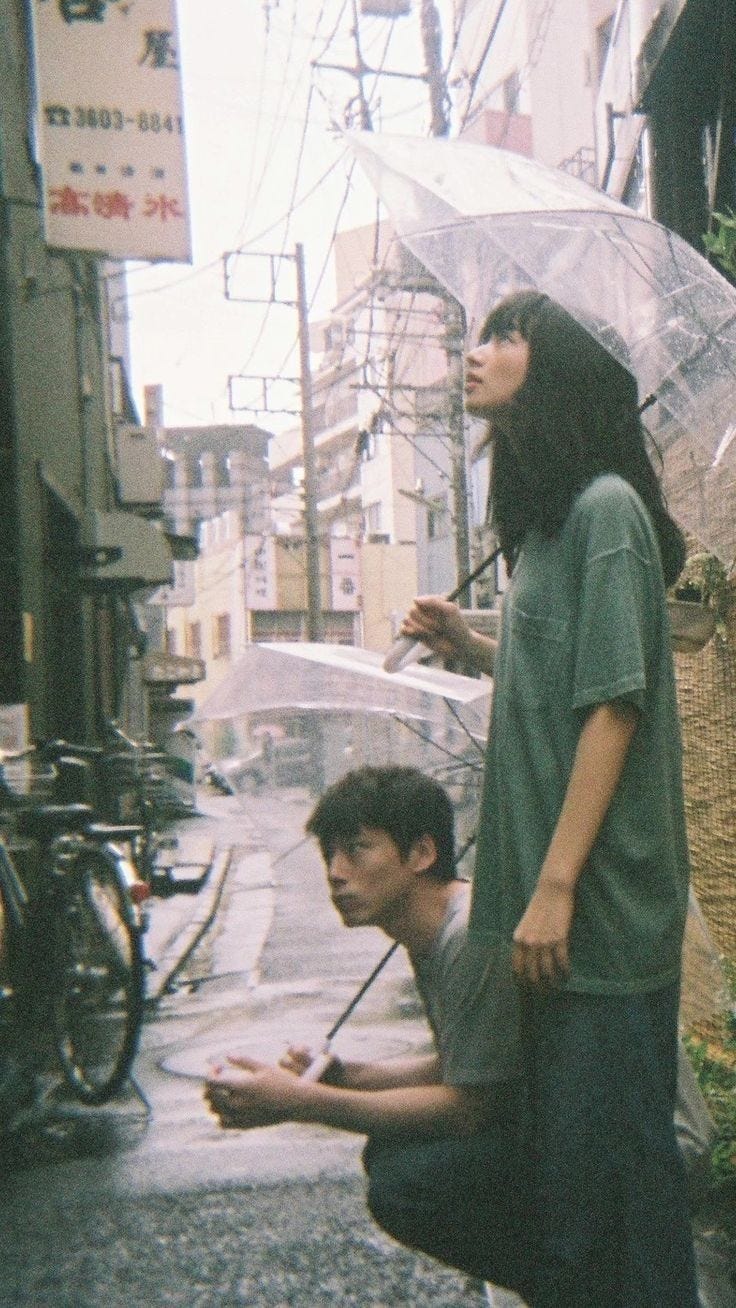
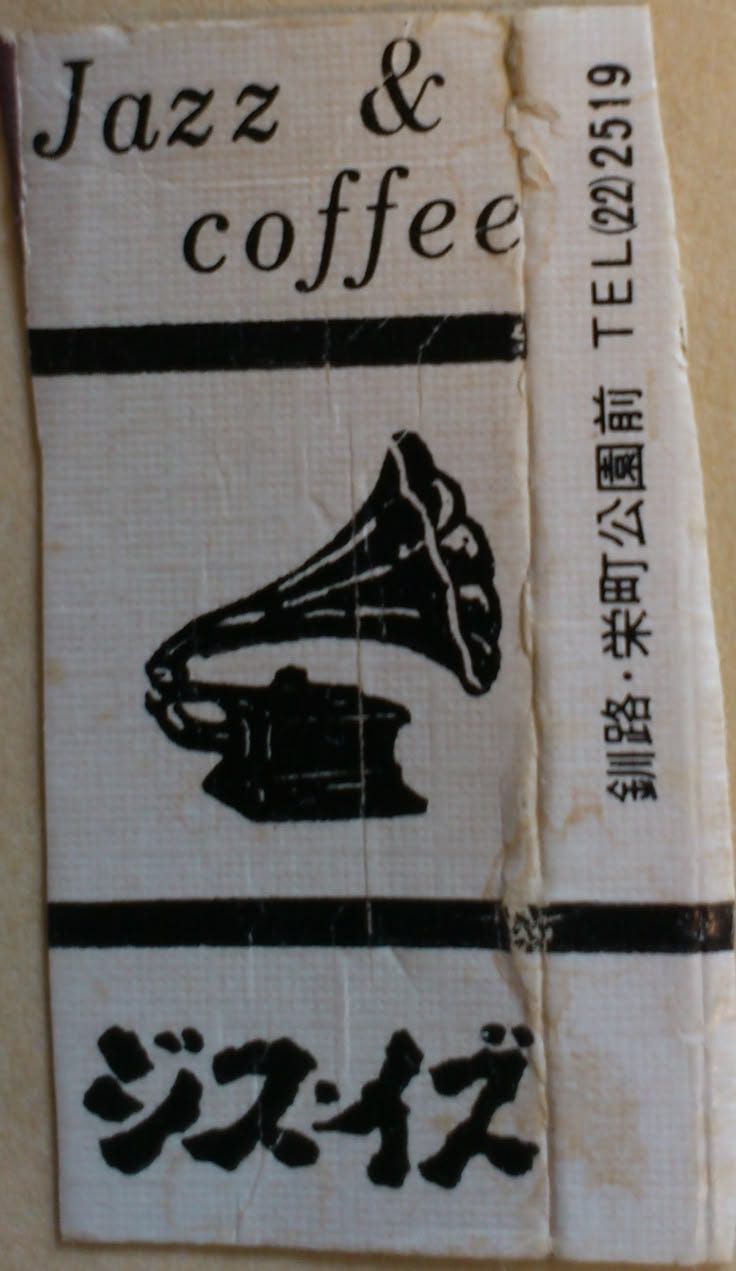
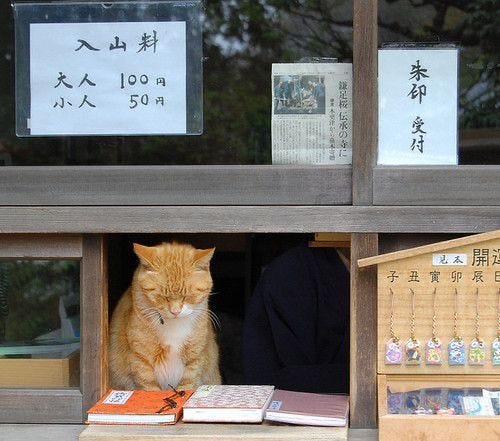
Such a lovely read, thank you.
I don’t know if you’ve seen perfect days by Wim Wenders, that film captures the essence of Japanese culture so beautifully.
love this 🫶 also there's two playlists that are private and won't let me open 🥲